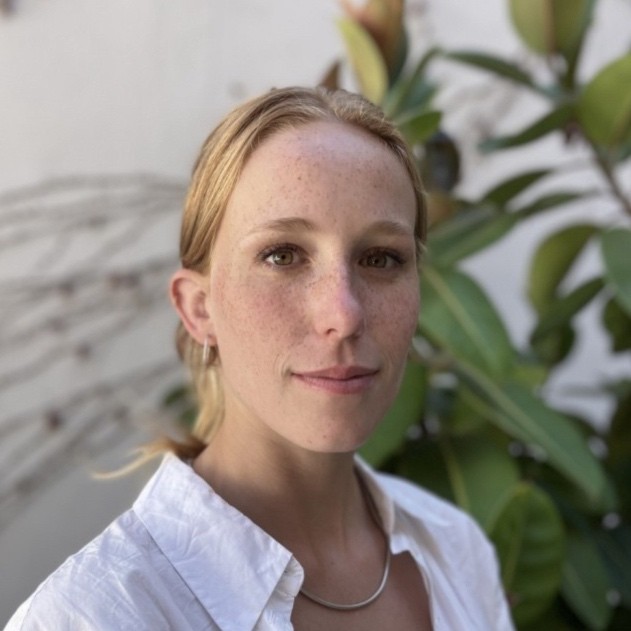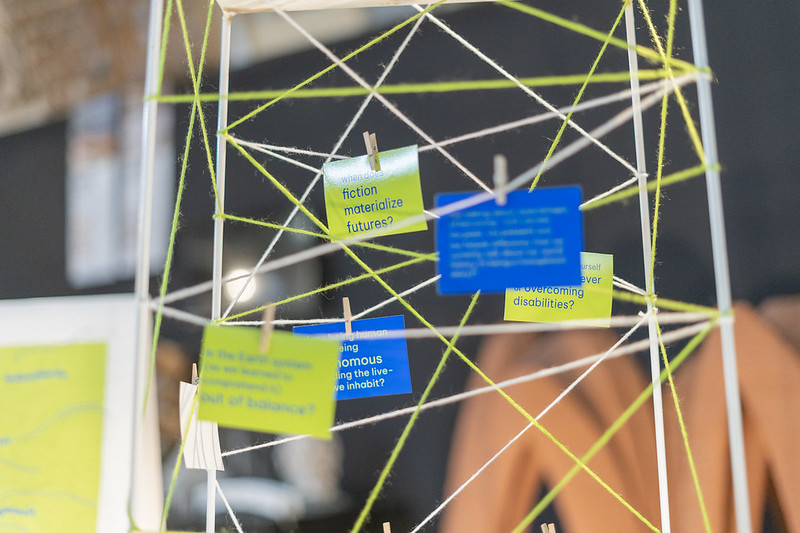Syllabus⇝
The Atlas of Weak Signals - A collective inquiry and embodied research of emerging signals
This workshop focuses on collaboratively reviewing the Atlas of Weak Signals, reviewing its relevance and collaboratively updating Signals through their research and insights. Students will engage in embodied research activities aimed at exploring alternative and pluralistic futures to identify and visualize weak signals. Through collaborative design exercises, the students will actively participate and shape the AOWS co-design methodology. Collectively, we will use digital and analog collage techniques to design the new cards, which will be added to an online repository. Keywords: Pluriverse, Atlas of Weak Signals, Ontological Design, Transition Design
Learning Objectives⇝
- Explore co-design and future(s) methodologies and their application.
- Co-develop new themes and cards for the Atlas of Weak Signals through a collective, iterative, critical inquiry design process.
- Collectively review, test, and evaluate co-designed Signals to assess their significance.
Methodological Strategies⇝
Different methodological strategies that will allow the development of the learning skills and results. Example: - Horizon Scanning - CIPHER workshop sheet and methodology
Other types of learning strategies associated with the program experience. Example: - Peer learning. - Team-based learning. - Critical Inquiry - Co-design methodologies
Schedule⇝
Wednesday 03.04.2024, 10:00 - 14:00 and 15:00 - 17:30⇝
Workshop sessions will be divided into five on each other building moments.
- Revisiting the AOWS - Collective sharing round and reflection
- Horizon scanning exercise - reviewing their areas of research and materializing trends
- Utilizing existing methods to frame signals and test them for their validity
- Polarization and provocation - A critical reflection on the identified signals
- Creative expression of the newly identified Signals
- Upload of Signal cards to a shared repository
Deliverables⇝
Each student will be tasked with prototyping a card of the Atlas of Weak Signals (AOWS).. Throughout this process, students will reflect on the polycrisis factors, critically and explore unconventional ideas. They will consider the tools and resources necessary to uncover unseen and unheard stories, allowing them to identify weak signals effectively. By critically evaluating their approach and identifying potential barriers they are invited to think beyond conventional boundaries and how to include pluralistic approaches in their design practice.
Grading Method⇝
| Percentage | Description |
|---|---|
| 40% | Participation |
| 30% | Signal development |
| 30% | Collective and individual reflection |
European Credit Transfer and Accumulation System (ECTS)
2 ECTS
Additional Resources⇝
- https://cards.chaseclimatejustice.network
- https://www.hiig.de/en/making-sense-of-the-future/
- https://thefuture.wtf
- Ontological Design - Anne Marie Willis, article here
- Indigenous Futures Thinking
- Regenerative Practice as Transformative Design Framework - Yari Or
- https://yearofclimate.care/en/articles/andras-csefalvay-10-certain-future-events
- https://superrr.net/feministtech/deck/
Faculty⇝
Jessica Guy is a designer and action researcher. Jessica’s work focuses on exploring participatory practices, community engagement and capacity-building activities in European research projects on a global and local scale. Jessica holds a Master degree in Design for Emergent Futures organised by the Institute for Advanced Architecture of Catalonia and Elisava Barcelona School of Design and Engineering, in collaboration with the Fab Lab Barcelona and Fab Academy. In the past, Jessica successfully graduated as an Industrial Designer (BA) at the Munich University for Applied Sciences and participated in the acceleration programme X-Futures by Fab Lab Barcelona. At Fab Lab Barcelona, Jessica is leading the global activities of the Creative Europe project Distributed Design Platform and co-leading the Erasmus+ Project Makeademy educational programme. Furthermore, they are the Make Works worldwide coordinator and lead of Make Works Catalonia. Jessica has contributed as a researcher to the European-funded projects Pop-Machina, CENTRINNO and REFLOW.

Julia Bertolaso
Design strategist and visual storyteller
Raised in Belgium and having studied and worked internationally, in London, Stockholm, Tokyo and Barcelona, Julia is a design strategist and visual storyteller with expertise in brand strategy, UI/UX, communication, and design direction. Driven by a passion for crafting future-focused experiences, Julia seeks design research projects that explore futures thinking, traditional crafts, and knowledge transfer. Over the past 5 years, Julia have helped clients rebrand their companies, develop new product identities and voices, and facilitate communication across platforms. She envisions new design narratives that emerge from the impact of technology and behavioural change on society and our planet. Julia is the co-founder of LINK, a transdisciplinary journal that explores modes of communication and translations within creative practices. She deeply care about future thinking and cultural shifts and believe that design, research, and strategy can play together a key role in creating a more collaborative and symbiotic future.

